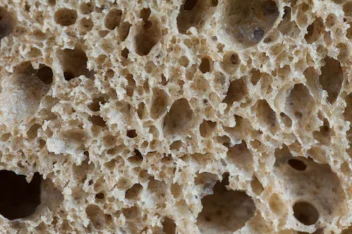At first glance, it may seem like veganism and gluten-free diets have nothing in common. However, there are some shared principles. For example, both diets emphasize whole, natural foods and avoid processed products. This means that someone following a vegan diet may also avoid many gluten-containing foods simply because they are highly processed.
Additionally, many plant-based foods are naturally gluten-free, such as fruits, vegetables, nuts, and seeds. This makes it easier for vegans to follow a gluten-free diet without feeling deprived. On the other hand, some gluten-free foods, such as gluten-free bread and pasta, may contain eggs or dairy, which are not vegan-friendly.
Is a vegan diet automatically gluten-free?
While many vegan foods are naturally gluten-free, not all vegan products are safe for those with celiac disease or gluten intolerance. Some vegan products, such as seitan (made from wheat gluten), contain gluten and should be avoided by those following a gluten-free diet.
It’s also important to note that many vegan restaurants and bakeries may not be gluten-free, so those with gluten sensitivities should be cautious when dining out.
Can a gluten-free diet be vegan?
Yes, it is possible to follow a gluten-free vegan diet. Many whole foods, such as fruits, vegetables, beans, and nuts, are both vegan and gluten-free. In addition, there are many gluten-free grains and flours that are suitable for vegans, such as quinoa, rice, and almond flour.
However, it can be more challenging to find vegan and gluten-free processed foods. Many gluten-free products contain eggs or dairy, and many vegan products contain gluten. It’s important to read labels carefully and choose products that meet both dietary restrictions.
Benefits of a vegan gluten-free diet
There are many potential benefits to following a vegan gluten-free diet. For those with celiac disease or gluten intolerance, a gluten-free diet is essential for avoiding uncomfortable symptoms and long-term health complications. By following a vegan diet, individuals can also lower their risk of heart disease, cancer, and other chronic diseases.
In addition, a vegan gluten-free diet may help with weight loss, as it emphasizes whole, nutrient-dense foods and eliminates many processed products.
Benefits of a Vegan Gluten-Free Diet
Following a vegan gluten-free diet can have several benefits. For people with celiac disease or gluten sensitivity, avoiding gluten can improve digestive symptoms and prevent long-term health complications. Eating a diet rich in plant-based foods can also lower the risk of chronic diseases like heart disease, diabetes, and certain types of cancer. Vegan diets are typically high in fiber, vitamins, minerals, and antioxidants, which are important for overall health and well-being.
Challenges of a Vegan Gluten-Free Diet
While there are many benefits to a vegan gluten-free diet, it can also present some challenges. One of the main challenges is getting enough protein, as many vegan protein sources like wheat gluten and seitan are not gluten-free. However, there are plenty of alternative sources of plant-based protein, such as soy, legumes, nuts, and seeds. Another challenge is the potential for nutrient deficiencies, as some essential nutrients like calcium, iron, and vitamin B12 are more difficult to obtain on a vegan diet. However, with careful planning and attention to nutrient intake, these challenges can be overcome.
Tips for Following a Vegan Gluten-Free Diet
To successfully follow a vegan gluten-free diet, it is important to plan ahead and be mindful of food choices. Here are some tips to help make it easier:
- Focus on whole, minimally processed foods like fruits, vegetables, whole grains, and legumes.
- Read labels carefully and avoid products that contain gluten or animal products.
- Experiment with new recipes and ingredients to keep meals interesting and varied.
- Consider consulting a registered dietitian to ensure that nutrient needs are being met.
- Incorporate fortified foods or supplements to ensure adequate intake of essential nutrients like calcium, vitamin D, and vitamin B12.
By following these tips and being mindful of dietary needs, it is possible to enjoy the benefits of a vegan gluten-free diet while still meeting all nutrient needs.
Challenges of a vegan gluten-free diet
While there are many potential benefits, there are also some challenges to following a vegan gluten-free diet. It can be difficult to find suitable products, especially when dining out or traveling. It may also be more expensive, as gluten-free and vegan products can be pricier than their conventional counterparts.
Additionally, some people may find it difficult to get enough protein and other essential nutrients on a vegan gluten-free diet. It’s important to plan meals carefully and consider taking supplements if necessary.
For people with celiac disease or non-celiac gluten sensitivity, going vegan may be a challenge. Many vegan products contain wheat, barley, or other gluten-containing ingredients. However, there are many gluten-free vegan alternatives available, such as tofu, tempeh, beans, lentils, nuts, seeds, and gluten-free grains like quinoa, rice, and corn. Additionally, some vegan products are specifically labeled as gluten-free, making it easier to identify safe options.
Overall, whether or not a vegan diet is gluten-free depends on the individual’s choices and dietary needs. With careful planning and attention to ingredient labels, it is possible to follow both diets and enjoy a wide variety of nutritious and delicious foods.
Conclusion
In conclusion, a vegan gluten-free diet is possible and can offer many potential health benefits. However, it’s important to carefully read labels and plan meals to ensure that all nutrient needs are met. It may also require some extra effort and expense, but many people find that the benefits are worth it.

